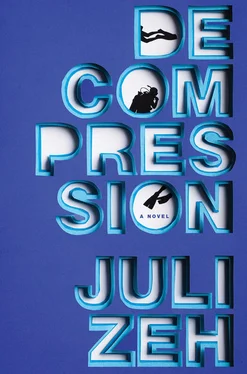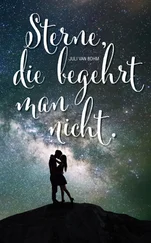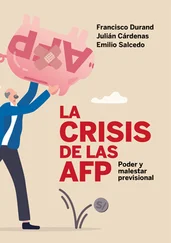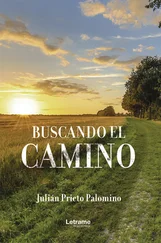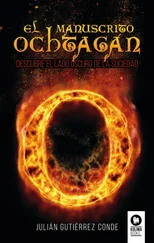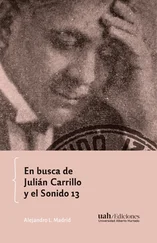A young girl wearing a man’s suit and a 1920s hairdo served the aperitifs: Aperol spritzes. My question as to what those might be made everybody laugh. A guy who was a singer in an East German band ordered a beer. On my left a young black man wearing gym shoes and a hoodie was grinning nonstop. I asked him how he liked the island. He understood neither German nor English nor Spanish. I couldn’t speak French.
We stood in a circle on the quarterdeck. The Dorset radiated light to all points of the compass. People in Morocco could probably see that something was going on here. A couple of children whom Bittmann had permitted to take a tour of the ship ran up and down the deck. Their parents were on the quay, so curious they didn’t know what to do. We gazed at the starry sky, or rather at what there was to see of it behind the haze of the Dorset ’s lights, and said, “Fantastic” and “Spectacular” alternately. Jola greeted a tall man in his sixties named Jankowski, whom Bittmann introduced as Germany’s most important literary critic. Next to Theo stood a lady wearing a multicolored shawl; according to Bittmann, she was the star director of the Schauspiel Köln theater. The other guests included a famous photographer with unwashed hair and the noted East German singer with his beer. The young black man was an artist from Burkina Faso who glued together collages of plastic bags; an exhibition of his work had opened in a gallery in Hamburg a few weeks before.
“Jola Pahlen and Theodor Hast need no introduction,” Bittmann said. “And this is …”
“My personal trainer,” said Jola, raising her glass to me.
I found that mortifying and therefore laughed with everyone else.
“Lovely to have you here,” Bittmann thundered, and all the glasses met in the center of the circle. “To art and culture!”
“To art and culture!” the guests shouted to the stars, and I began to have an uneasy feeling that my dinner companions, no matter how well or little they were acquainted and whether or not they liked one another, all belonged to a kind of club, a club whose membership didn’t include me. It had been an eternity since I’d last stepped into a museum. I didn’t read books, didn’t listen to music, rarely watched a movie, never went to the theater, and couldn’t even stand the works bequeathed to the island by its local artist. Such things, I felt, required me to make myself small and to tilt my head as far back as possible.
“Art is always where you aren’t,” Antje had said to me one day. She meant this observation as a reproach, but I considered it a compliment. Maybe it was an either-or proposition: you could love nature, or you could love art. Nature needs no admirers. It works, in every respect, by itself. I took another glass of Aperol from the flapper’s tray.
“I wouldn’t have recognized you,” Jankowski said to Theo. “The photograph on your book must be a little old now.”
“As old as the book,” said Jola with a bewitching smile.
“When will we see something new from you?” Jankowski asked.
“I’m working on a big project,” said Theo. “It’s a social novel that—”
“Great,” said Jankowski.
“He writes short stories,” I remarked.
“Touché!” Jola cried out and pressed my hand. Jankowski laughed.
“Short stories,” he said, winking at me. “What do you know.”
I saw Theo’s jaw muscles working, felt unclear about what exactly I’d just done, and emptied my glass. Bittmann shooed the children off the yacht and invited us to move to the dining salon on the lower deck.
With an elegant naturalness that surprised even me, I stepped back and let Jola go first down the stairs. Antje was one of those women who got irritated when someone held a door open for them. Jola inclined her head like a queen, gathered up her dress, and descended the steep steps. The action of her thigh muscles showed through the clinging material she wore. An athlete’s legs. I looked from above at her artfully braided hairdo. The impulse simply to turn around and run home grew almost overwhelming. The other guests crowded down the narrow steps behind me. Everything is will , I thought. Without knowing what I meant by that. One after the other, we plunged into the Dorset ’s belly.
Down there, the past was waiting for us. The restorers had returned the interior of the Dorset to its original 1926 splendor. Cherrywood paneling on the walls. Cream-colored leather upholstery on chairs and armchairs. Every door handle, every little wall lamp, every drawer pull was polished brass. The large skylight in the ceiling overhead reflected the candles on the dining table. Over the sideboard, an oil painting of the “Big Five”: the five biggest racing cutters of the 1920s sailing in a regatta, the Dorset in the midst of them. Shamrock, Westward, Britannia— I couldn’t think of the fifth schooner’s name. Jola would certainly have known it at once.
The flapper had duplicated herself. The two of them were now passing out glasses of Moët & Chandon, an activity that required them to snake among the guests. The presence of nine people standing in the salon showed how small it actually was. We formed a miniature group of banqueters in a miniature banquet room. The noise level rose. Glasses clinked. The champagne was excellent. The girls distributed refills. When she laughed, Jola clutched my forearm, which I was holding bent at an angle, like a waiter. The warmth in the room seemed to emanate from her body. At last, Bittmann suggested we take our places at the table. The seating arrangement was up to us. We sat down. Jola was on my right, the black Frenchman still on my left. Theo sat at the other end of the table, far from Jola, who now belonged to me. That was exactly what I thought: She belongs to me . I let myself lean back, laid my arm across the top of Jola’s chair, and laughed at a joke I hadn’t understood at all.
Scallop and swordfish carpaccio with lime-tomato marinade.
The photographer scarfed down the appetizer in something under two minutes. Then he wiped the marinade from his mouth and declared that the European economic crisis would widen the gap between rich and poor. Bittmann pointed out that the Riesling we were drinking came from a good friend’s vineyard on the Mosel River, where a coalition of the righteous was staunchly protesting against the building of a bridge. The star director chimed in, observing that the people were in the process of being repoliticized. Jankowski asked the singer, who was washing down his scallops with beer, why there were so many Nazis in the former DDR. The young black man and Jola chatted in French, leaning across me from both sides in order to hear each other better. The star director talked about her latest play, in which actors who’d spent weeks conversing with hookers, junkies, and homeless people played hookers, junkies, and homeless people. She spoke rapidly, making frequent use of the word authenticity . When I asked who’d written the play and what it was about, Jankowski went into a paroxysm of laughter. He struck the table with the flat of his hand and cried out, “Sven, you’re priceless!” Jankowski had liked me from the start. The director’s answer was drowned in the general uproar. Theo looked at me from the other end of the table in a way I couldn’t interpret. The evening was getting better and better. In Jola’s mouth, French sounded like a song with no beginning and no end.
Black ribbon pasta with lobster sauce.
The photographer, his shirt sprinkled with droplets of sauce, asserted that the financial crisis had signaled the definitive end of capitalism. The singer informed us that his band had been supporting projects to combat right-wing extremism ever since the reunification. Jankowski, nodding distractedly, listened while Bittmann praised the real economy.
Читать дальше
